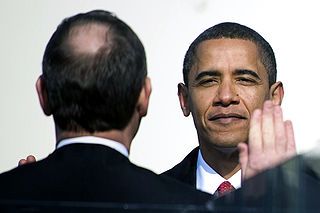President Obama Tackles Climate Change in Inaugural Address
Just when I was starting to wonder if the subject of climate change would ever come up again in U.S. politics, President Obama makes a huge deal of it in his second inaugural address.
This is a good thing, and I’d sure like to believe that it’s a serious harbinger of a world power that has come to take its responsibilities seriously. I’d love to think that, in a short period of time, America will somehow transform itself from a laggard to a leader, and assert itself in the development of clean technology that is so obviously vital to our moral, economic, and national security interests.
But a speech does not change reality. To pick one of hundreds of potential sticking points: 60 of our 100 senators come from coal-producing states. Do you know what they say when asked to develop an energy policy that reduces coal? In the words of Ray Lane (managing partner of venture capital giant Kleiner Perkins, whom I interviewed for Is Renewable Really Doable?):
They don’t say “no.” They say “hell no.”
Again, I’d sure love to be a believer; I just wish there were a reason to hold out that hope.


They don’t say “no.” They say “hell no.”
Or maybe they say “when Hell freezes over” or
When lithium ion batteries stop catching on fire.
Holding U.S. coal production to current levels is a best case scenario. Reduction in coal use will occur when other technologies mature and come on line. Meanwhile, the most likely scenario is for coal production to increase as China’s ravenous appetite for energy (of all kinds) now will snap up world reserves whereever they may be found.
This race to save the planet is dependent on ramping up solar, wind and nuclear; not on curbing coal production per se.
Yes, we must increase solar, wind, wave & geothermal power generation. Those are the sustainable energy sources.
If we ever build any next generation nuclear, it may make coal uneconomical. Right now, switching to natural gas for electricity production will reduce coal demand.
Citizens in Oregon & Washington are involved in a Coal export fight. Wyoming coal shipments to China should not be allowed to pollute Montana, Idaho, Oregon & Wyoming for the benefit of coal companies. Coal burned in China will produce mercury, sulfur & other pollutants. China does not have the pollution control rules the USA has by law.
We should all look upwind to see what coal fired power plants are killing you & your children. Protest against them.
We also need to install solar on our rooftops. Solar hot water can offset domestic hot water costs. Heating water does not need a grid hookup, only a simple, local building permit. Solar PV is either grid connected or stored in batteries until needed. Both are getting more affordable.
A plug-in electric vehicle charged with solar electricity reduces coal demand and petroleum demand. Win-Win!
Craig, Can you provide any information about how much energy can be saved by recycling? I have read that recycling aluminum saves 95% of the cost of making a product compared to mining, transporting & refining from a bauxite mine.
In my community, recycling newspaper & cardboard removed the most pounds from the waste stream. The county recycling program makes money. The city & county waste disposal program costs money.